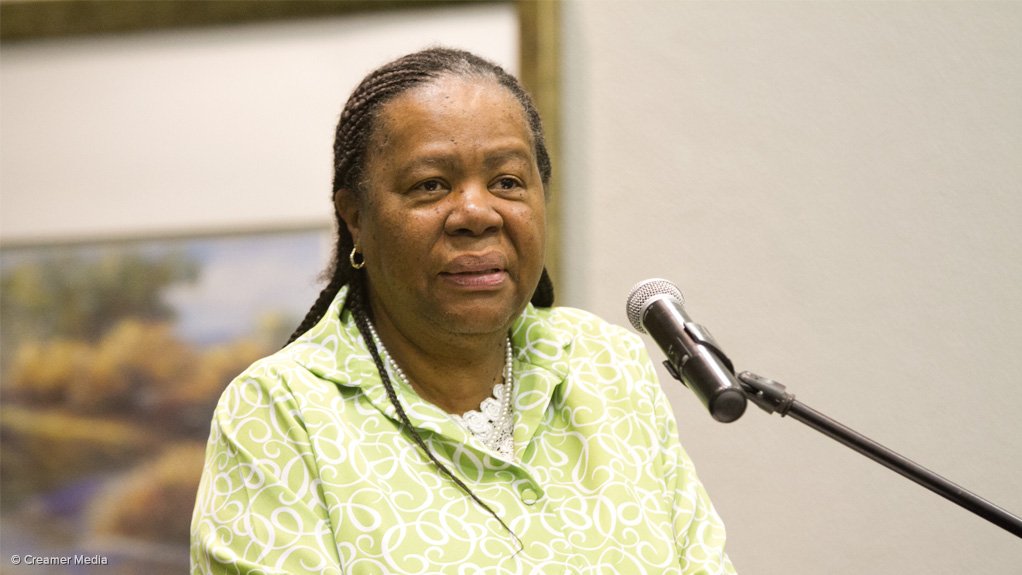Calls for gender transformation in science, technology
Science and Technology Minister Naledi Pandor says if women’s talents were used in the fields of science, technology and innovation, the world would develop much more progressively.
The Minister said gender imbalance across these research-driven fields continues to be a challenge, and that more needs to be done to change the picture so more women researchers, scientists and technologists can be developed.
Minister Pandor said this when delivering a keynote address at the fifth Gender Africa Summit at the Cape Town International Convention Centre on Tuesday.
“Most of us know that more women live in poverty than men, more women are unemployed than men, more women are denied education than men.
“We believe if we use women’s talents, all of us in the world would benefit. If we used women’s talents, we believe we can build a better world.
“Very few women leaders give rise to wars, and very few women leaders support the development of weapons of mass destruction. So if we had women leading the world, we would probably have a better world and would have far less conflict than we have today.
“The time has come to let women change the world,” she said.
The three-day summit, which is being hosted for the first time in South Africa, is co-hosted by the Department of Science and Technology, Human Sciences Research Council and Medical Research Council.
The summit takes a fresh look at gender issues in the field of science in order to formulate a gender policy charter for scientific research, amongst others.
In demonstrating the impact women have had in countries where their talents are used, the Minister cited China.
“We are aware of the fact that what had to happen China was that women had to be allowed to come out of their homes and to use their talents in the economic spaces.
“Women were brought into the place of work… and research institutions in China. The phenomenal growth that we have seen in the economy of that country should be the source of inspiration, certainly to us, on the African continent.
“What is perhaps more impressive is that China’s economic transformation has been driven by that country’s investment in science, technology and engineering,” she said.
She said, however, the picture of women participation in these fields remains minimal.
Citing a World Bank report, Minister Pandor said women were still under represented in these fields.
“As the African continent, we feel that the gender imbalance in the practical science, technology and innovation activities should be fully addressed by ourselves in all the countries in Africa.
“We must ensure that more young women enter the sciences. We must ensure that the pipelines from schools to university is attended to with great seriousness, that the young women we produce from schools, as well as young boys, are fully competent in physical science, mathematics and in the life sciences because if we don’t address the pipeline, our ambitions for higher education will mean very little.”
Professor Olive Shisana, the CEO of the Human Sciences Research Council, said in various sectors, gender imbalance was still a challenge that needs to be addressed.
She said there were a lot of gender inequalities and bias that frame males as the “norm”, which has influenced science, medicine and technology. She said as a result, efforts to incorporate gender analysis research must be increased.
“One of the solutions that we are proposing is gender analysis is needed in all phases of research – from funding decisions, project conceptualisation and objective setting, methodologies and ethics, data collection and analysis, and to making recommendations based on results.
“[The gender analysis] must be coupled with fixing the number of women in science and fixing white male domination of institutions and universities,” she said.
The professor said, for example, that in research, cardiovascular diseases research was usually conducted on males as it was believed more men die from the disease, while stats have proven the opposite.
When a man suffers from a heart attack, she said, he experiences pains in the chest and left arm, while women can experience pain in the chest with nausea, vomiting, pain in the right arm and back, fatigue, cold sweat and dizziness.
In the field of technology, male dummies were used in the manufacturing of seatbelts while they were found to be uncomfortable for pregnant women.
Comments
Announcements
What's On
Subscribe to improve your user experience...
Option 1 (equivalent of R125 a month):
Receive a weekly copy of Creamer Media's Engineering News & Mining Weekly magazine
(print copy for those in South Africa and e-magazine for those outside of South Africa)
Receive daily email newsletters
Access to full search results
Access archive of magazine back copies
Access to Projects in Progress
Access to ONE Research Report of your choice in PDF format
Option 2 (equivalent of R375 a month):
All benefits from Option 1
PLUS
Access to Creamer Media's Research Channel Africa for ALL Research Reports, in PDF format, on various industrial and mining sectors
including Electricity; Water; Energy Transition; Hydrogen; Roads, Rail and Ports; Coal; Gold; Platinum; Battery Metals; etc.
Already a subscriber?
Forgotten your password?
Receive weekly copy of Creamer Media's Engineering News & Mining Weekly magazine (print copy for those in South Africa and e-magazine for those outside of South Africa)
➕
Recieve daily email newsletters
➕
Access to full search results
➕
Access archive of magazine back copies
➕
Access to Projects in Progress
➕
Access to ONE Research Report of your choice in PDF format
RESEARCH CHANNEL AFRICA
R4500 (equivalent of R375 a month)
SUBSCRIBEAll benefits from Option 1
➕
Access to Creamer Media's Research Channel Africa for ALL Research Reports on various industrial and mining sectors, in PDF format, including on:
Electricity
➕
Water
➕
Energy Transition
➕
Hydrogen
➕
Roads, Rail and Ports
➕
Coal
➕
Gold
➕
Platinum
➕
Battery Metals
➕
etc.
Receive all benefits from Option 1 or Option 2 delivered to numerous people at your company
➕
Multiple User names and Passwords for simultaneous log-ins
➕
Intranet integration access to all in your organisation





















